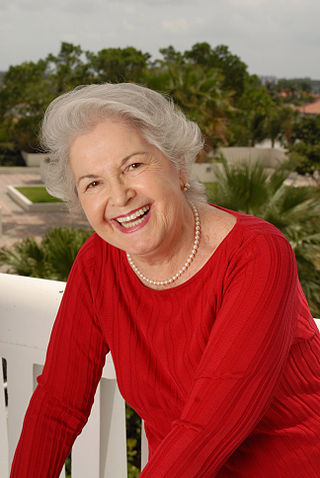
Mauthausen was a Nazi concentration camp on a hill above the market town of Mauthausen, Upper Austria. It was the main camp of a group with nearly 100 further subcamps located throughout Austria and southern Germany. The three Gusen concentration camps in and around the village of St Georgen/Gusen, just a few kilometres from Mauthausen, held a significant proportion of prisoners within the camp complex, at times exceeding the number of prisoners at the Mauthausen main camp.

Josef Kramer was Hauptsturmführer and the Commandant of Auschwitz-Birkenau and of the Bergen-Belsen concentration camp. Dubbed the Beast of Belsen by camp inmates, he was a German Nazi war criminal, directly responsible for the deaths of thousands of people. He was detained by the British Army after the Second World War, convicted of war crimes, and hanged on the gallows in the prison at Hamelin by British executioner Albert Pierrepoint.

Charlotte Delbo was a French writer chiefly known for her haunting memoirs of her time as a prisoner in Auschwitz, where she was sent for her activities as a member of the French resistance.
The Holocaust has been a prominent subject of art and literature throughout the second half of the twentieth century. There is a wide range of ways–including dance, film, literature, music, and television–in which the Holocaust has been represented in the arts and popular culture.
Miklós Nyiszli was a Hungarian prisoner of Jewish heritage at Auschwitz concentration camp. Nyiszli, his wife, and young daughter, were transported to Auschwitz in June 1944. Upon his arrival, Nyiszli volunteered as a doctor and was sent to work at No. 12 barracks where he operated on and tried to help the ill with only the most basic medical supplies and tools. He was under the supervision of Josef Mengele, a Schutzstaffel officer and physician.

Charles Edward Merrill Jr. was an American educator, author, and philanthropist, best known for supporting historically black colleges and founding the Commonwealth School in Boston.

Aranka Siegal is a writer, Holocaust survivor, and recipient of the Newbery Honor and Boston Globe-Horn Book Award, both awarded to her in 1982. She is the author of three books, the best known of which is Upon the Head of the Goat: A Childhood in Hungary 1930-1944, a memoir of her childhood in Hungary before her 12-month imprisonment in the Nazi concentration camps, Auschwitz – Birkenau and Bergen-Belsen.
Leopold Rosner was a Polish-born Australian musician. Rosner, who was Jewish, survived the Holocaust in Nazi concentration camps during World War II by playing his accordion for Nazi officials. This earned the attention of Oskar Schindler, who saved his life by having him placed on his famous list. His story became known after Australian author Thomas Keneally's 1982 novel, Schindler's Ark, was adapted into Steven Spielberg's Oscar-winning film, Schindler's List. He appeared in the epilogue of the film at the Schindler's grave on Mount Zion.
Siggi B. Wilzig, born Siegbert Wilzig, was a survivor of concentration camps Auschwitz and Mauthausen who arrived in the U.S. in 1947 with little money and only a grade school education. By the time of his death in 2003, he had created an empire in oil and banking with more than $4 billion in assets. Wilzig was a frequent lecturer on the importance of Holocaust memory, an outspoken opponent of Holocaust denial, and instrumental in building the U.S. Holocaust Memorial Museum in Washington, D.C.

Yehuda Bacon is an Israeli artist who survived the Holocaust.

Friedrich Karl Hermann Entress was a German camp doctor in various concentration and extermination camps during the Second World War. He conducted human medical experimentation at Auschwitz and introduced the procedure there of injecting lethal doses of phenol directly into the hearts of prisoners. He was captured by the Allies in 1945, sentenced to death at the Mauthausen-Gusen camp trials, and executed in 1947.
LudwigSokolov, was an Austro-Hungarian-born Slovak-Australian businessman and Holocaust survivor.

Anka Bergman was a Czech Holocaust survivor noted for giving birth to Eva Clarke whilst at Mauthausen concentration camp.
Edith Eva Eger is a Slovakian-born American psychologist. Born to Hungarian Jewish parents, she is a Holocaust survivor and a specialist in the treatment of post-traumatic stress disorder. Her memoirs entitled The Choice - Embrace the Possible, published in 2017, became an international bestseller. Her second book, titled The Gift - 12 Lessons to Save Your Life was published in September 2020.
Aviva Bar-On is a Czechoslovakian-Israeli Holocaust survivor.
Eva Olga Clarke is a British-Czech Holocaust survivor and former college administrator known for her birth at Mauthausen concentration camp. She is a speaker for the Holocaust Educational Trust. Clarke combats modern day instances of racism and prejudice through sharing her family's experiences in the Holocaust.

Renée Firestone is a Hungarian-Jewish survivor of the Holocaust and educator, who became known for her fashion designs in the 1960s after she immigrated to the United States.

Edward Mosberg was a Polish-American Holocaust survivor, educator, and philanthropist. During the Holocaust, he was held by the Nazis from 14 years of age in Kraków Ghetto, Kraków-Płaszów concentration camp, Auschwitz concentration camp, Mauthausen concentration camp, and a slave labor camp in Linz, Austria, that was liberated by the US Army in 1945. Nearly all of his family were murdered in the Holocaust.
Harvard Law School alumni records, Safeway Inc. 1992 Annual Report









